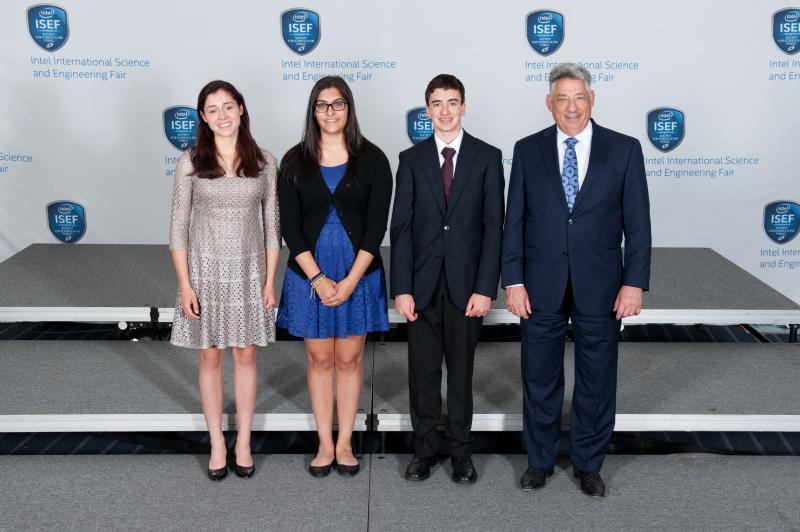ISEF Winners Announced for NSA Research Directorate Award
The 2015 NSA Research Directorate Award was presented to three research projects at the 2015 Intel International Science and Engineering Fair on May 14th, 2015. The NSA Research Award at ISEF recognizes outstanding scientific accomplishment in cybersecurity. Criteria of selction include impact and generalization of results, novel aspects of project, quality of science communication and reflective of scientific principles.
First Place ($3,000): A Novel Algorithm for #SAT Using Inclusion-Exclusion Principle and Memorization by Elliot Gorokhovsky, 16 from Fairview High School in Boulder, Colorado
Project Description: #SAT is a generalization of an important computer science problem of counting how many conditions satisfy a set of Boolean functions. One use of #SAT solvers is to verify the security properties of cryptographic algorithm. Elliot developed a novel approach for the counting models of the conjunctive normal form formulas (CNF) that uses memorization (the principle of caching the results of function calls so that they may be reused) to exploit the order of the clauses in this formula and the structure they create. This makes possible the optimization of #SAT by focusing on clustering that maximize the potential for memorization in the algorithm. His algorithm presents a new lens through which to view #SAT as an independent algorithm and as a complement to the depth-first search (DPLL) algorithm.
Honorable Mention: ($1,000): Capacity Limits of Working Memory: The Impact of Multitasking on Congitive Control in Digital Natives and Digital Immigrants by Sarayu Caulfield, 17 and Alexandra Ulmer, 18 from Oregon Episcopal School in Portland, Oregon
Project Description: This is a study of people's ability to process information, cognitive control, in respect to age and multitasking. Sarayu and Alexandra performed a human behavior study where they tested people on how well they could task switch and task filter controlling for multitasking activities, such as checking for an email. They found that high media multitaskers (most adolescents) have a lower ability to filter irrelevant information (task filter) and are less able to limit representation of irrelevant tasks (task switch). It suggests thats adults more often could focus on a task while adolescents focused on distracting stimuli.
Honorable Mention: ($1,000): Development of an Authorship Identification Algorithm for Twitter Using Stylometric Techniques by Cherry Ying Zou, 16 from Poolesville High School in Poolesville, Maryland
Project Description: This projected worked on improving algorithms to detect authorship of twitter posts. Traditional authorship algorithms require longer lengths of text to get accuracy but twitter tweets are 140 characters or less. Cherry used different bigram (two letter combinations) as tokens in a modified navie bayes classifier. She tested her approach using celebrity tweets as her dataset. And her approach increased accuracy by around 25%. This approach can be applied to anonymous cyber crimes on twitter.
Article on NSA.gov about the award: https://www.nsa.gov/news-features/news-stories/2015/nsa-research-supports-next-generation-of-scientists-and-engineers.shtml
Congratulations to the winners. Pictured below (L->R) Alexandra Ulmer, Sarayu Caulfield, Elliot Gorokhovsky, Steven Katz of NSA.